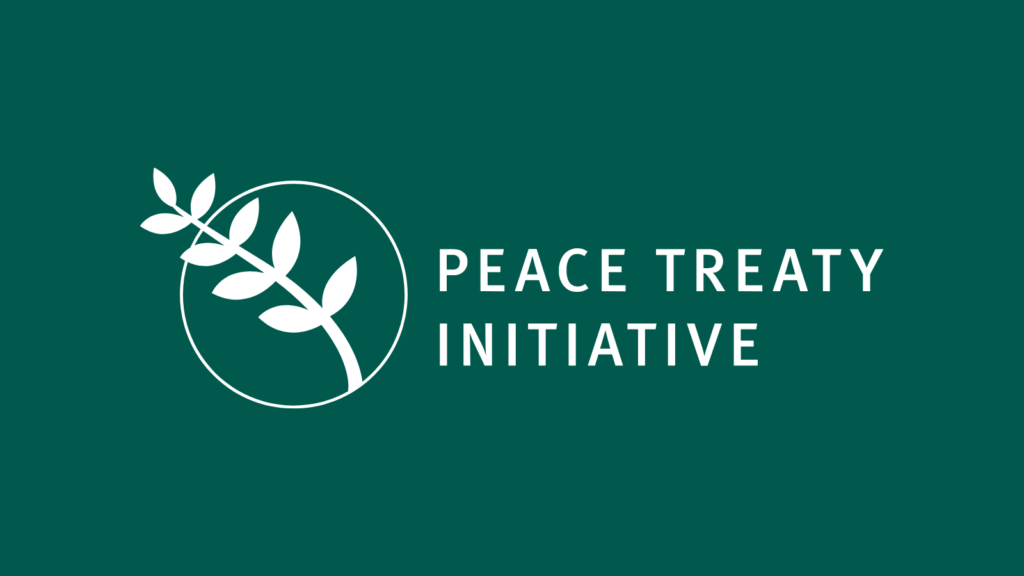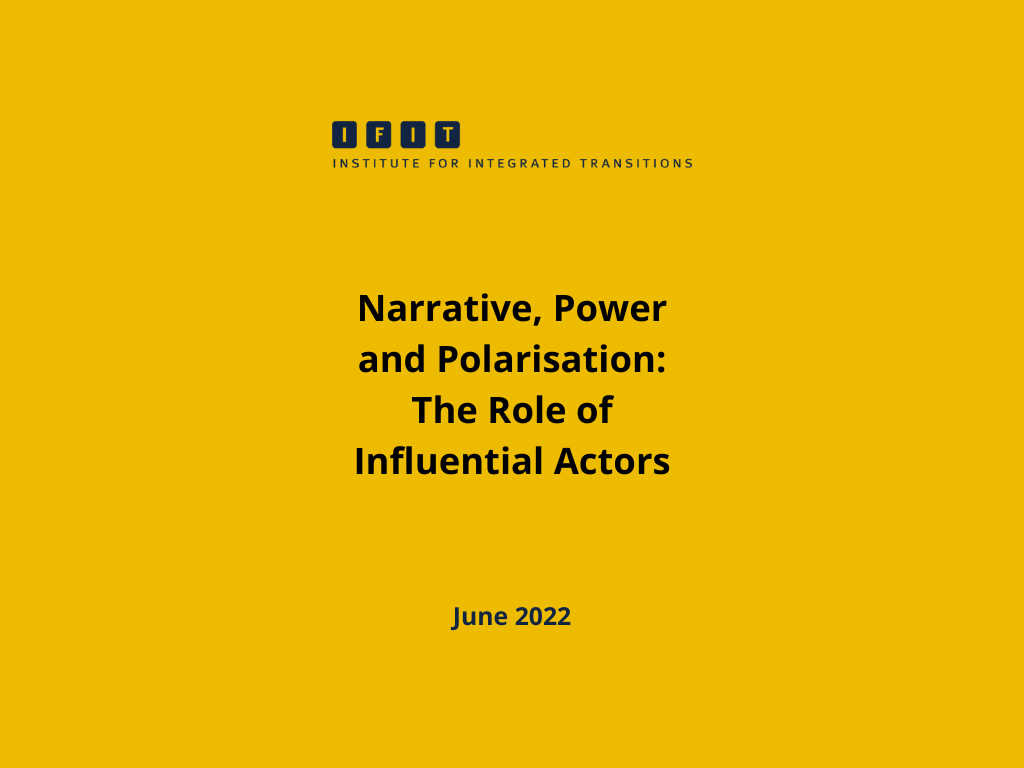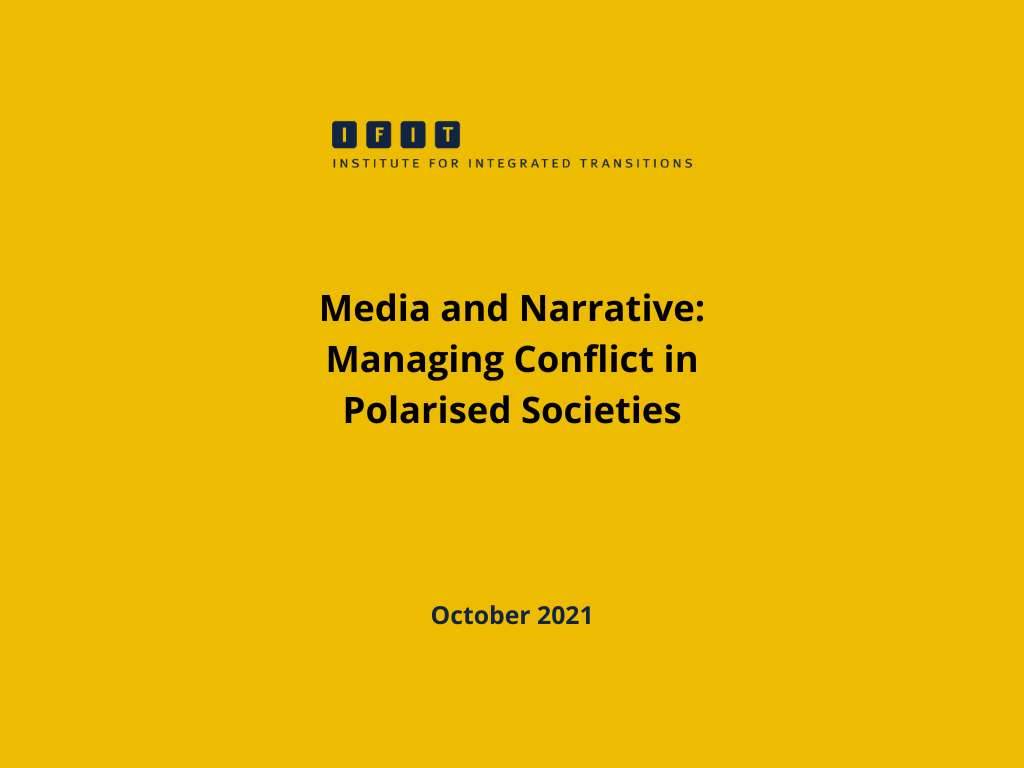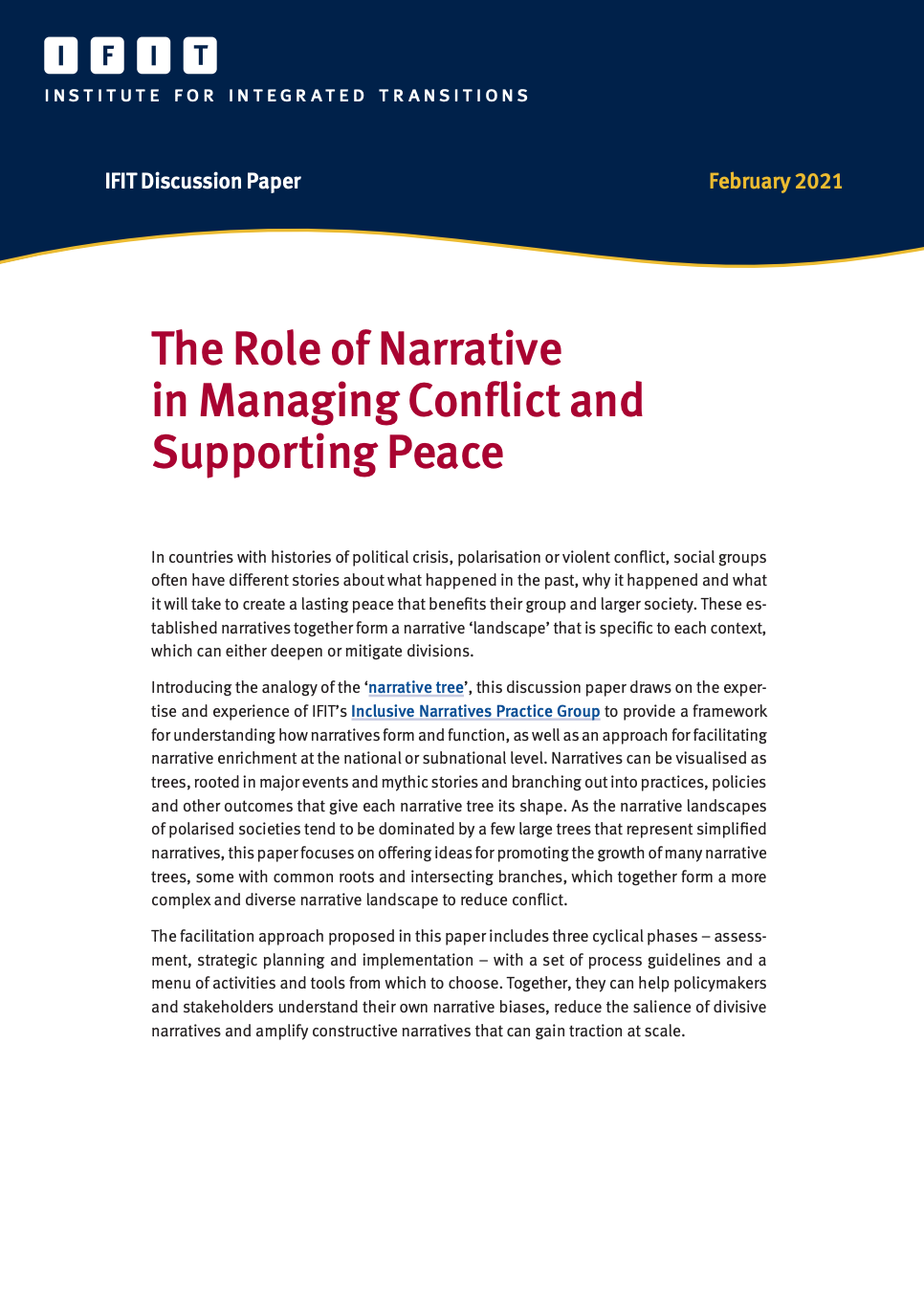Publication
/ Inclusive Narratives
The Role of Narrative in Managing Conflict and Supporting Peace
Introducing the analogy of the ‘narrative tree’, this IFIT discussion paper draws on the expertise and experience of IFIT’s Inclusive Narratives Practice Group to provide a framework for understanding how narratives form and function, as well as an approach for facilitating narrative enrichment at the national or subnational level.
In countries with histories of political crisis, polarisation or violent conflict, social groups often have different stories about what happened in the past, why it happened and what it will take to create a lasting peace that benefits their group and larger society. These established narratives together form a narrative ‘landscape’ that is specific to each context, which can either deepen or mitigate divisions.
The paper argues – counterintuitively – that lasting peace does not come from everyone holding a common narrative; instead, it emerges in environments where many diverse narratives are encouraged to thrive together.
The DOI registration ID for this publication is: https://doi.org/10.13140/RG.2.2.11612.51847
You may also be interested in
![IFIT Peace Treaty Initiative]()
Public Commentary
/ 11 November 2020
Building the International Law of Peace
By Mark Freeman / IFIT Founder and Executive Director
![]()
publication /
Inclusive Narratives
Narrative Dynamics in Polarised Contexts: A Case Study of the 2021 National Protests in Colombia
![]()
publication /
Inclusive Narratives
Key External Resources on Narrative Peacebuilding
![]()
publication /
Inclusive Narratives
Narrative, Power and Polarisation: The Role of Influential Actors
Available in:
-
Español
![]()
publication /
Inclusive Narratives
Media and Narrative: Managing Conflict in Polarised Societies
Available in:
-
Español
Introducing the analogy of the ‘narrative tree’, this IFIT discussion paper draws on the expertise and experience of IFIT’s Inclusive Narratives Practice Group to provide a framework for understanding how narratives form and function, as well as an approach for facilitating narrative enrichment at the national or subnational level.
In countries with histories of political crisis, polarisation or violent conflict, social groups often have different stories about what happened in the past, why it happened and what it will take to create a lasting peace that benefits their group and larger society. These established narratives together form a narrative ‘landscape’ that is specific to each context, which can either deepen or mitigate divisions.
The paper argues – counterintuitively – that lasting peace does not come from everyone holding a common narrative; instead, it emerges in environments where many diverse narratives are encouraged to thrive together.
The DOI registration ID for this publication is: https://doi.org/10.13140/RG.2.2.11612.51847
You may also be interested in

Public Commentary / 11 November 2020
Building the International Law of Peace

publication / Inclusive Narratives
Narrative Dynamics in Polarised Contexts: A Case Study of the 2021 National Protests in Colombia

publication / Inclusive Narratives
Key External Resources on Narrative Peacebuilding

publication / Inclusive Narratives
Narrative, Power and Polarisation: The Role of Influential Actors
- Español

publication / Inclusive Narratives
Media and Narrative: Managing Conflict in Polarised Societies
- Español


